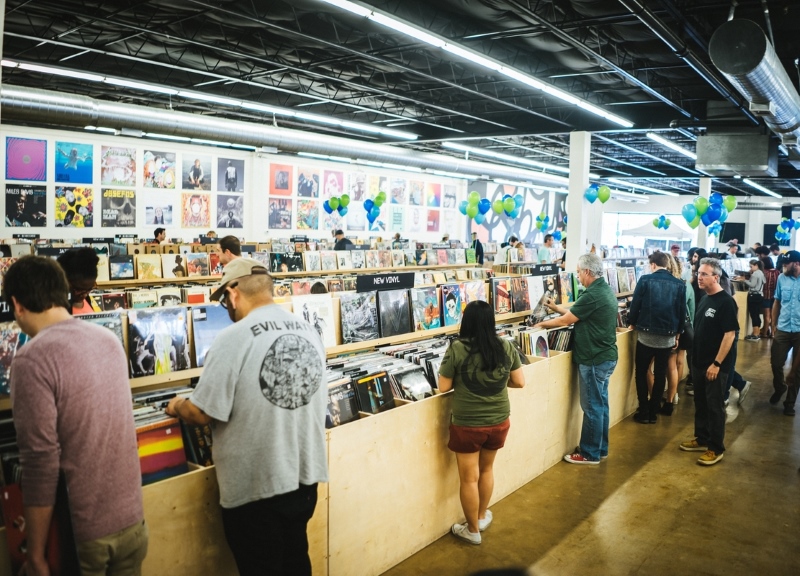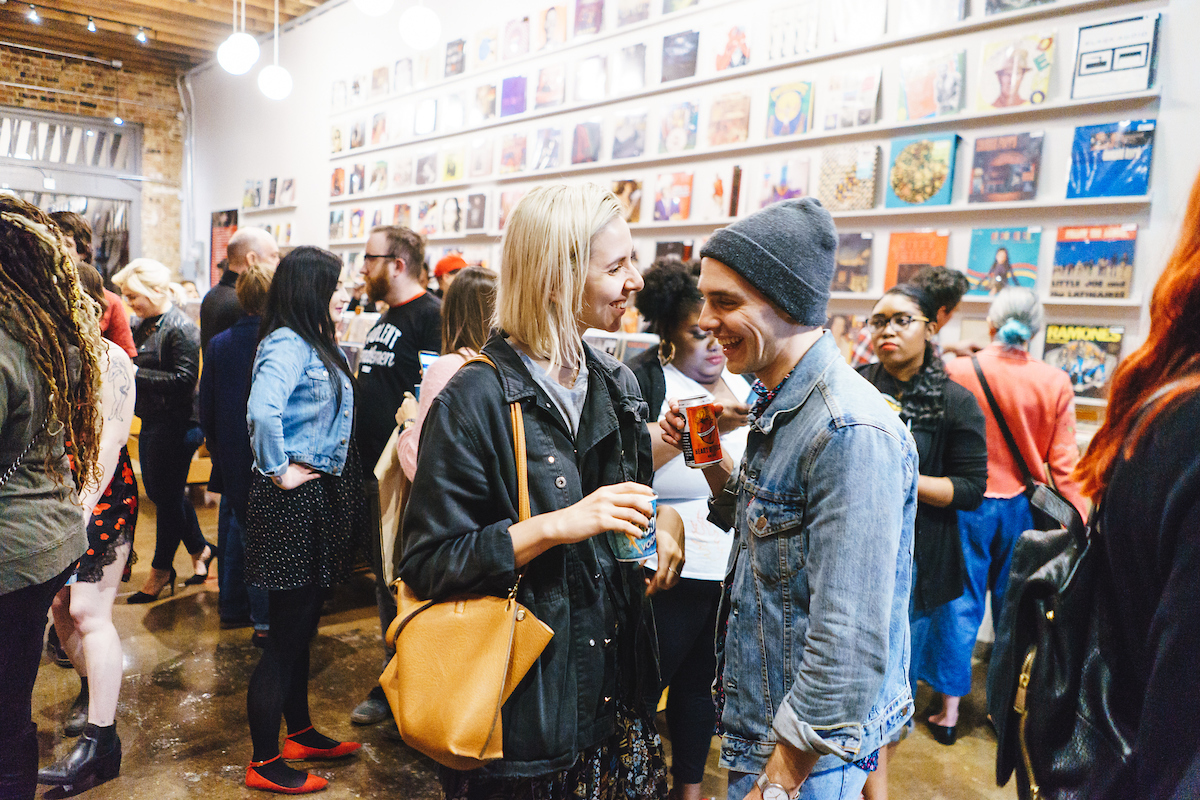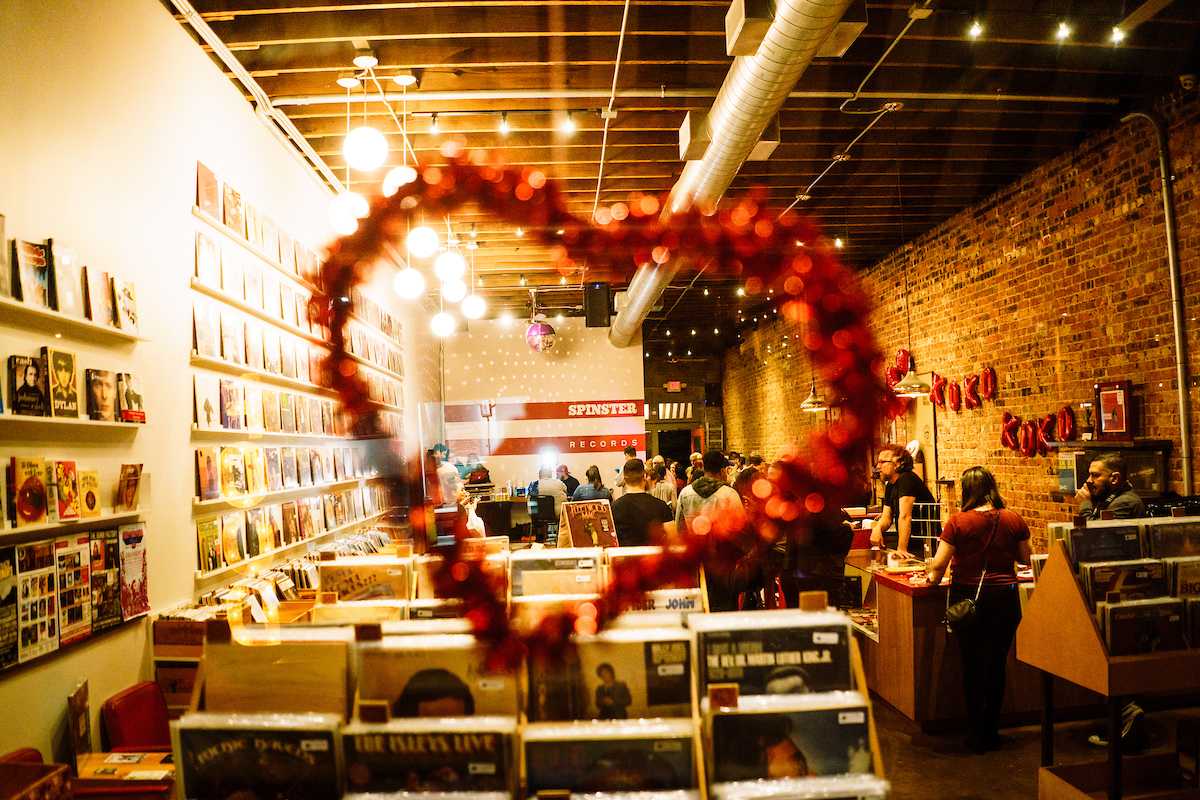Long After The Death Knell For Record Stores Was Supposed To Have Rung, Dallas’ Josey Records And Spinster Records Keep Opening Stores In New Markets.
Music industry analyst Bob Lefsetz once wrote that “investing in vinyl is like placing your future in the hands of septuagenarians.”
It’s a fair point. Though hailed in recent years as the savior of brick-and-mortar shops that specialize in selling music as physical media, vinyl remains an underdog when faced with the rapid rise of music streaming sites such as Spotify and Tidal, which radically shifted the paradigm of music consumption and seriously threatens the appeal of physical formats. Y’know, as if things weren’t tough enough on mom-and-pop shops given the shrinking middle class and an increasing ubiquity in e-commerce retailers such as Barnes & Noble and Urban Outfitters crowding the already-compact vinyl space.
Speaking of e-commerce: These days, most record labels sell direct-to-consumer and even offer pre-order options whenever artists are slated to release a new LP. And then there are companies like the Denver-based startup Vinyl Me, Please, which sells records and even offers a “Record of the Month” series in which they send random LPs to consumers in a model similar to Netflix’s old DVD rental service. Even in that niche space within a niche space, Vinyl Me, Please is faced with stiff competition from brands such as Mississippi Records and Numero Group.
Add to this gargantuan pile of barriers and misfortunes the fact that record stores are capital-intensive ventures, and generally located in areas with thriving commercial activity, typically causing them to incur enormous rent prices until they’re forced to relocate.
Considering the above, any record store that manages to stay in the black in 2019 should really be celebrated at face value as a triumph. It would be truly awe-inspiring, then, if a local record store were not only to just able to stay afloat, but to become so profitable thanks to such a successful proof-of-concept that they were able to open satellite locations in secondary or even tertiary markets. And, rather shockingly, that can be said of two modern Dallas record shops.
In the last few years, the Farmers Branch-based Josey Records and the Oak Cliff-based Spinster Records — both of which opened as standalone upstarts in the Dallas area just five years ago in 2014 — have each opened new satellite locations in Tulsa. The former also has opened locations in Kansas City and Lubbock.

A busy day at Josey Records’ 15,500-square-foot flagship store in Dallas.
That kind of expansion seems downright incredible given the factors laid out in this article’s opening paragraphs. So, how are these businesses pulling off these remarkable feats?
“We believe that one of our success factors is that we build a community around our stores,” says Josey Records co-owner Waric Cameron. “Each of our stores has [its] own personality, and builds [a] community and foundation around that.”
In Cameron’s eyes, conveying a warm sense of identity and authenticity is crucial to making a local record store successful. It’s enough, he says, to counterbalance the threat Amazon and big-box retailers carrying vinyl, which he actually views as indirectly supporting collector culture at large and, by extension, local stores like his.
“Vinyl has certainly had a resurgence, and we think [it’s] great that Urban Outfitters or the like has recently carried vinyl,” Cameron continues. “If those young folks get turned on to collecting vinyl at one of those stores or Amazon and they stick with it, they will eventually find us and, as they get deeper into collecting vinyl, they will want to experience the culture of vinyl that only dedicated record stores can provide.”
Spinster Records owner David Grover seconds that notion, while adding that corporate players just don’t do not pose a threat when it comes down to the true core competencies of stores such as his.
“The competitiveness is on supplying, for sure,” says Grover. “Where online and big box retailers can’t compete is personalization.”
Grover and Cameron both agree on one key principle in ensuring the success of a local record store: The vibe is everything. You can get an LP of Black Flag’s Damaged at a Barnes & Noble, but you’d be buying it in a two-story building with tacky coffee-shop decor. Buying the same record at a boutique music store and within vicinity of a cashier who can suggest Saccharine Trust or fIREHOSE based on Black Flag’s label affiliation just cannot be replicated elsewhere. (Ask a random Barnes & Noble cashier about Saccharine Trust and report back to us on what they tell you.)

The scene at Spinster Records’ annual 214 Day party at its Oak Cliff location in 2018 .
In other words: Cameron and Grover interestingly look at the lamented kinds of shops glorified in such films as High Fidelity, Empire Records and Pretty In Pink as the ones they feel are actually likely to thrive in the modern market. The key, they say, is to deeply root their businesses into their respective communities as Josey and Spinster have long accomplished through hosting various events at their Dallas locations — an ideology each has brought with them to their new, out-of-town outposts as well.
But why, then, have these brands expanded to Tulsa, Kansas City and Lubbock as opposed to more traditional music hubs like New York City or Chicago? The obvious answer is that there’s less competition in these smaller markets. The more nuanced explanation, though, is that smaller markets can have healthy music consumption cultures just as larger ones do.
It’s not really an accident that Josey and Spinster both ended up opening shops in Tulsa. More surprising, Grover says, was the lack of established competition for these Dallas brands that were looking to lay down roots in that city.
“Tulsa just has a really vibrant music scene — it’s kind of like a Deep Ellum [and] Oak Cliff combined,” Grover says. “Tulsa was a music city that [we felt] was under-served by record stores.”
Cameron, though not quite as forthcoming about specifics, backs up Grover’s sentiment that proper research is the biggest factor in Josey’s own growth.
“[W]e pick our expansion locations very carefully,” he says,
Clearly, that diligence is paying dividends — to sometimes surprising ends, Grover admits.

A shot from Spinster’s 2019 214 Day party in Oak Cliff.
“I didn’t think [Spinster Records’ initial location in Oak Cliff] was going to be so successful that fast,” Grover says. “We opened up, and it was like the scene just came to us.”
That kind of response, Grover concedes, very much goes against all conventional wisdom and logic. But he’s not trying to look his gift horse in its mouth. He’s just happy to report that business is good. As is Josey.
And as for Lefsetz and his thoughts about vinyl being on the way out? Well, let’s just say it’s not the first time he’s been wrong, and it probably won’t be the last time, either.
The proof is in Josey and Spinster’s puddings. Against all odds, brick-and-mortar record stores aren’t just not dead; hell, at this rate, they might be headed back to thriving again.
All photos by Karlo X. Ramos.
